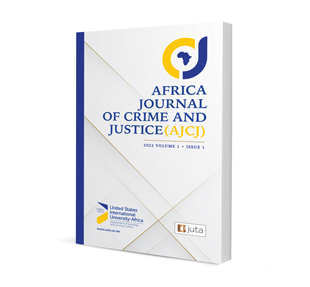
Reparation Orders at the International Criminal Court: The Quest of the Victims in the Bosco Ntaganda Case
Author: Douglas Kipchumba Keter
ISSN: 2958-8162
Affiliations: School of Humanities and Social Sciences, United States International University-Africa, Nairobi, Kenya
Source: Africa Journal of Crime and Justice 2022, p. 184 – 209
https://doi.org/10.47348/AJCJ/2022/a8
Abstract
Article 75 of the Rome Statute of the International Criminal Court (Rome Statute) on reparation has been heralded as a milestone achievement in the history of international criminal justice. Four significant reparation orders have so far been given by the International Criminal Court (ICC). The first was issued on 7 August 2012 against Thomas Lubanga, where the ICC admitted its success was connected to the success of its reparation mechanism. On 8 March 2021, Trial Chamber VI awarded USD 30 million to victims of crimes committed by Bosco Ntaganda. However, to date, victims are yet to benefit. The backbone of reparation in the Ntaganda case was built on a reparation mechanism with a corrective effect on the situation in the Democratic Republic of Congo, prioritisation of the needs of vulnerable victims, and prompt reparation. Archival information reveals that reparation in the Ntaganda case is yet to achieve what it set out to achieve. Restitution and restorative theories of crime form the key theories of discussion in this research. This research sets the centre stage for further research to facilitate improvement in this critical area of the justice process at the ICC. Efficient and effective reparations at the ICC plays a critical role in addressing victims’ plight, resulting in increased confidence in court operations. There is a need for research on how the efficiency of reparation at the ICC can be enhanced, perhaps by forming a restorative justice branch.